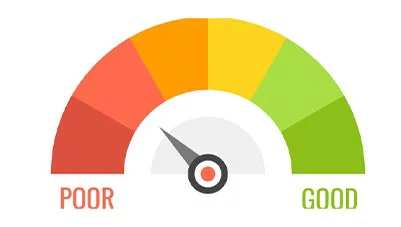When considering a personal loan application, lenders use various metrics to determine an applicant’s creditworthiness. Among these, the CIBIL score stands out as a pivotal determinant.
This three-digit number offers lenders a snapshot of your financial discipline and repayment history. But what is the minimum CIBIL score for personal loan approval?
This article aims to answer this question, helping readers grasp the significance of this essential financial metric and offering insights on improving it.
The CIBIL Score Breakdown
Typically, the CIBIL score ranges from 300 to 900. A score closer to 900 indicates a higher creditworthiness, signifying a strong history of credit usage and timely repayments. Conversely, a score nearing 300 suggests potential financial mismanagement or past defaults.
So, What’s the Magic Number?
There isn’t a universally fixed “magic number”, as the minimum CIBIL score for personal loan applications can vary based on the lender and other considerations. However, most lenders:
Prefer a Score Above 750: A CIBIL score of 750 or above is generally considered excellent. Borrowers in this bracket often enjoy quicker approvals, larger loan amounts, and possibly, reduced interest rates.
Might Consider Scores Between 600-750: This range is viewed as moderate. While applicants might still secure a loan, they could face slightly higher interest rates or stricter loan terms.
Are Wary of Scores Below 600: This is the risky zone. Traditional lenders might hesitate to grant loans to individuals with scores in this bracket. However, it’s not an absolute no-go; other factors like stable income can still sway the decision.
Other Influencing Factors
While the CIBIL score is paramount, lenders also weigh in on:
Income Stability: A steady income can sometimes offset a not-so-perfect CIBIL score. It assures lenders of your ability to repay the loan.
Employment History: Long-term employment or association with reputed organisations can be a positive sign, reflecting stability.
Existing Debts: If you’re already juggling multiple loans or high credit card balances, lenders might consider you over-leveraged and hesitate to extend additional credit.
The Consequences of a Low CIBIL Score
A lower-than-ideal CIBIL score can have repercussions, including:
Loan Denials: The most apparent consequence is the outright rejection of loan applications.
Higher Interest Rates: If approved, you might have to contend with steeper interest rates, which increases the total repayment amount.
Smaller Loan Amounts: Lenders might limit the loan amount, deeming larger sums riskier.
Navigating Loan Applications with a Low Score
If your CIBIL score isn’t up to the mark, all hope isn’t lost. Consider seeking smaller loan amounts, approaching non-traditional lenders, or opting for secured loans.
How to Increase CIBIL Score
Improving your CIBIL score is a gradual process. Here’s how to increase your CIBIL score effectively:
Timely Payments: Ensure you pay all your EMIs and credit card bills on time. Avoiding late payments is crucial.
Reduce Outstanding Debt: Pay off or reduce any existing debts. This not only betters your score but also decreases your credit utilisation ratio.
Limit New Credit Applications: Frequently applying for new credit can dent your CIBIL score, as each application involves a hard credit check.
Review Credit Report for Errors: Mistakes or discrepancies in your credit report can unfairly lower your score. Regularly review your report and rectify any errors you spot.
The Broader Implications of CIBIL Score in Financial Decisions
Beyond the realm of personal loans, your CIBIL score plays a crucial role in various other financial aspects of your life, including:
Role in Home and Car Loans: When thinking of purchasing a new home or vehicle, the CIBIL score becomes a decisive factor for lenders. A higher score often leads to better loan terms, including reduced interest rates, which can amount to significant savings over the years.
Influence on Credit Card Approvals: A commendable CIBIL score can open doors to premium credit cards that come with higher limits and additional benefits. These cards can offer cashback, loyalty points, and other perks, which can be extremely beneficial in the long run.
Rental Agreements and Housing: In urban areas, some landlords and property managers have begun checking potential tenants’ credit scores. A satisfactory score can often signify financial stability and responsibility, making you a preferred tenant.
Negotiation Power
A strong CIBIL score can be a powerful tool in negotiations. Whether you’re discussing loan terms or credit card interest rates, a solid score gives you an edge, allowing for better terms and conditions.
Conclusion
The minimum CIBIL score for personal loan approvals isn’t set in stone. While a higher score undoubtedly smoothens the process, other factors play significant roles. Therefore, it’s essential to continually work on improving your CIBIL score. By understanding how to increase your CIBIL score and maintaining diligent financial habits, you can pave the way for a robust financial future, ensuring easier access to credit when needed.


